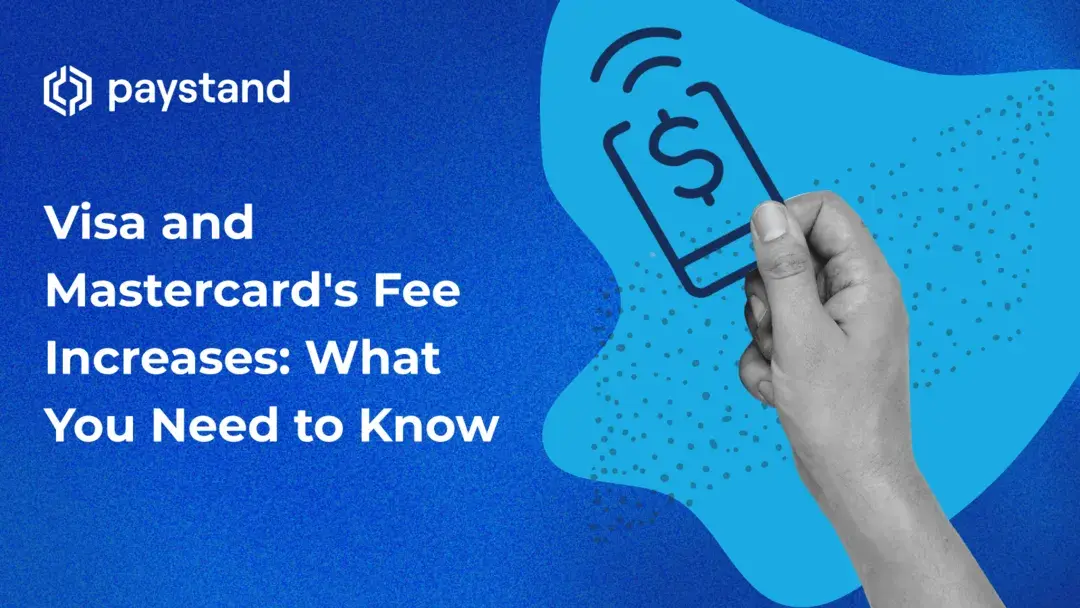Visa and Mastercard's Fee Increases: What You Need to Know

Visa and Mastercard's decision to raise fees is causing worry in the industry. These credit card giants are poised to make changes that customers really won't like as they seek to boost their revenue streams.
In this article, we'll dive into the impending fee hikes and explore their potential impact on merchants and consumers.
Understanding the Fee Hikes
The first question on everyone's mind is, "When will these fee increases take effect?" The Wall Street Journal says Visa will raise fees in October, and Mastercard will do the same in April 2024. CMSPI estimates that these fee increases could cost merchants $502 million more in annual fees. That's no small change; businesses of all sizes will undoubtedly feel the pinch.
But here's the surprising part: only around half of that $502 million will come from higher network fees. The other half comes from swipe fees, which merchants pay whenever a customer pays with a credit card. Credit card companies make a great amount of their money from fees, even though consumers don't always see them.
The Impact on Merchants
According to the Nilson Report, in 2022, American merchants paid about $93 billion in fees to Visa and Mastercard. This figure is staggering compared to the $33 billion paid out in 2012. The main problem is that card companies keep the network fees, but banks benefit from swipe fees.
This planned fee increase couldn't have come at a worse time for small businesses. Many are still grappling with the challenges of inflation and high-interest rates. In this uncertain economy, businesses are urging customers to pay with cash or debit cards to avoid high credit card fees.
The Credit Card Competition Act
To address the upcoming fee increases, a new bill called the Credit Card Competition Act has been reintroduced in both the House and Senate. The bill has support from both political parties. This legislation aims to give merchants options for accepting Visa and Mastercard payments.
Sen. Dick Durbin, a Democrat from Illinois, backed the bill. He said, "We're fighting inflation in America, and Visa and Mastercard are on the other side of the battle. Consumers and retailers are trying to keep prices down. Visa and Mastercard are trying to run them up with a fee they charge for each transaction".
Seeking Feeless Solutions
As Visa and Mastercard gear up to implement these fee increases, the financial landscape is set to change. The impact remains to be seen, but one thing is clear: the financial world is in flux, and individuals and businesses must adapt to these shifting dynamics.
Amid these impending fee hikes, there is hope for merchants and consumers alike –Paystand. We offer an alternative to credit card payments, providing an efficient, cost-effective solution.
- Zero-Fee Transactions. The Paystand Bank Network is a zero-fee, digital payment network that allows real-time bank-to-bank transfers. We work from a subscription-based software model, not a transaction-based model, so you no longer need to pay transaction fees, as you pay a flat monthly fee to use our software.
- Enhanced Security. Paystand prioritizes protecting sensitive financial information. Thanks to its strong security measures, businesses and customers can feel secure when conducting transactions.
- Customer Convenience. Paystand's interface is easy to use, which can increase customer satisfaction and retention.
- Integration. Paystand can easily integrate with your current ERP, making switching to our payment solution simple.
In an era where businesses seek ways to cut costs and improve efficiency, Paystand emerges as a viable solution. Businesses can handle rising credit card fees by reducing costs, improving security, and streamlining operations.
To learn more about this topic, get a free copy of our Guide to Credit Card Fees and How to Eliminate Them, or book a demo with one of our experts to start reducing costs, and make your business thrive.





